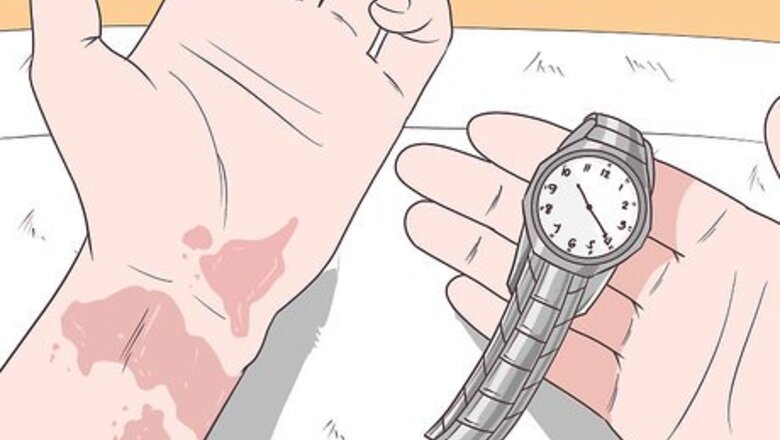
views
X
Trustworthy Source
PubMed Central
Journal archive from the U.S. National Institutes of Health
Go to source
Flush the vinegar and care for minor burns at home. If your burn shows signs of infection, consult a doctor just to be on the safe side.[2]
X
Trustworthy Source
PubMed Central
Journal archive from the U.S. National Institutes of Health
Go to source
Flushing the Vinegar
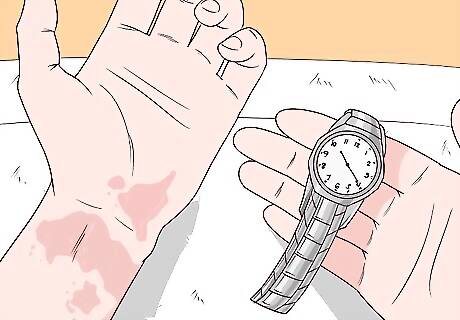
Remove clothing or jewelry that has vinegar on it. Gently take off any clothes or jewelry near the burned skin. Try not to pull clothes over the burned area to keep from irritating your skin further.
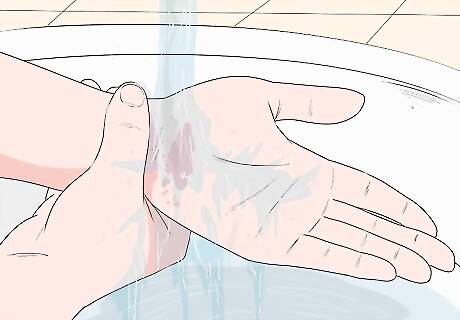
Run the burn under cool running water for 20 minutes. Turn the faucet on so the stream of water is gentle rather than strong. Rinse the burned area under the cool running water to remove any traces of vinegar and soothe your inflamed skin. Do not rub or scrub your burn as you rinse.
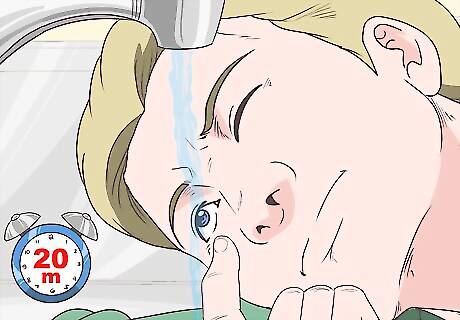
Rinse your eyes for 20 minutes with room-temperature water. Remove your glasses or contact lenses if you've gotten vinegar in your eyes. Blink your eyes under a gentle stream of room-temperature water for 20 minutes. If your child has gotten vinegar in their eyes, gently pour the water over the bridge of their nose and encourage blinking. Then, flush their eyes with room-temperature water for 20 minutes in a tub, shower or sink.
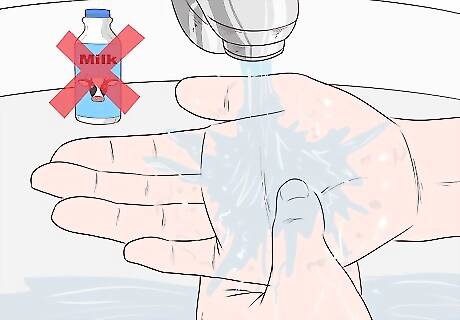
Avoid using milk or other liquids to flush a burn. Use only clean, fresh water to cleanse burns. Other liquids may further irritate burned skin rather than soothing it.
Caring for the Burn

Seek medical attention for eye burns. After you flush your eyes for 20 minutes with room-temperature water, it's important to seek medical care at an emergency room or walk-in clinic. Burns in the eyes can lead to corneal damage even with rinsing, so it's important to get them assessed by a doctor.
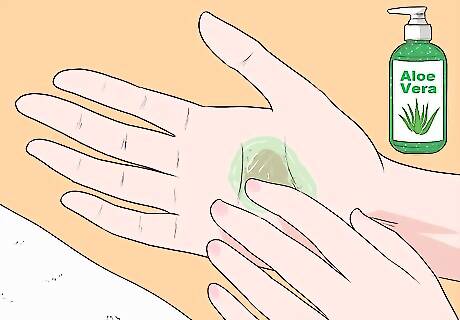
Apply aloe vera gel to cool burns on your skin. Rub a dime-sized amount of aloe vera gel gently onto your burn with clean hands. Avoid applying analgesic or antiseptic balms that are oil-based, such as Neosporin or petroleum jelly. They can trap heat against the burn and further irritate it. Never apply aloe vera gel to your eyes.
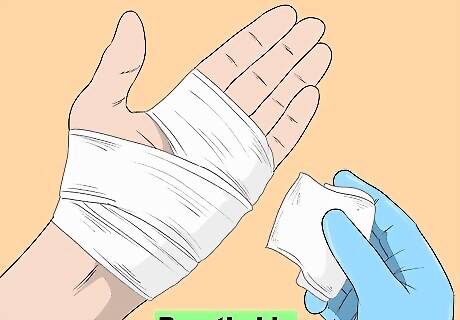
Wrap the skin loosely in sterilized gauze, if available. Look in your first aid kit for some clean, sterilized gauze. Wrap the burn loosely to protect it from potential rubbing as you go about your day. Breathable bandages like gauze are better than latex bandages that trap moisture over the burn.

Take OTC pain medication as needed. Use nonprescription pain medications, such as acetaminophen, ibuprofen, and naproxen, to relieve any minor discomfort your burn causes. Always take these medications as indicated on the manufacturer's directions. If your pain persists, make a doctor's appointment rather than taking additional pain medication. Avoid taking these medications with alcohol, as the combination can be hard on your liver.
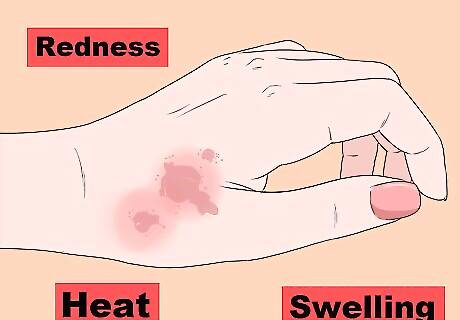
Monitor the burn for heat, redness, or swelling. Watch your irritated skin in the days following the burn. If you notice any signs of a potential infection, such as the skin feeling hot to the touch, redness, pus, or swelling, consult your doctor.
Preventing Apple Cider Vinegar Burns
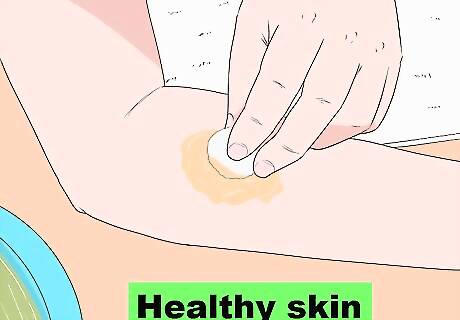
Use apple cider vinegar only on healthy skin. Avoid applying apple cider vinegar to broken or damaged skin. Vinegar is irritating and may make your compromised skin vulnerable to bacterial infections. Your doctor can treat bacterial infections with topical or oral antibiotics.
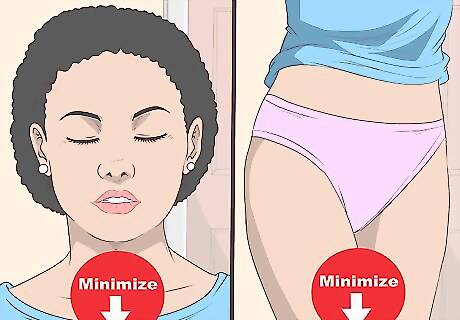
Steer clear of sensitive areas. Minimize skin irritation by not putting vinegar on your face or genitals. This will likely sting and can compromise the integrity of your skin. It is especially important to avoid your eye area.
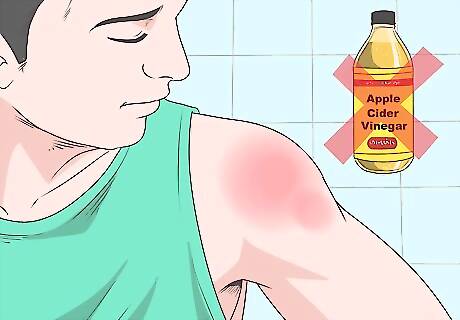
Stop using apple cider vinegar if you feel burning or irritation. Rinse your skin and halt your vinegar use if the vinegar stings or inflames your skin. There are no confirmed medical benefits of using vinegar topically. It's best to consult a doctor about any skin concerns rather than trying untested home remedies.
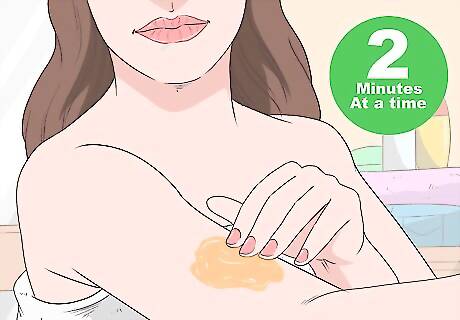
Don't put apple cider vinegar on the skin for prolonged periods of time. Avoid applying apple cider vinegar to your skin for more than a minute or two at a time, especially not with occlusive dressings, such as bandages. Especially under dressings, vinegar can erode your skin and cause serious burns. Some skin types may be more sensitive to acids like vinegar than others, so it's difficult to advise on a safe level of exposure.




















Comments
0 comment